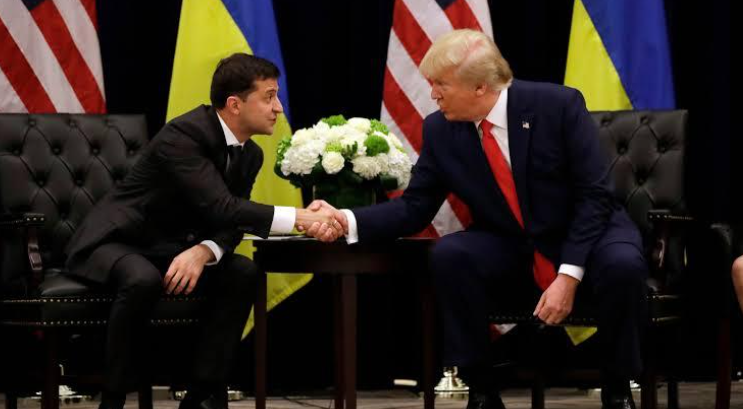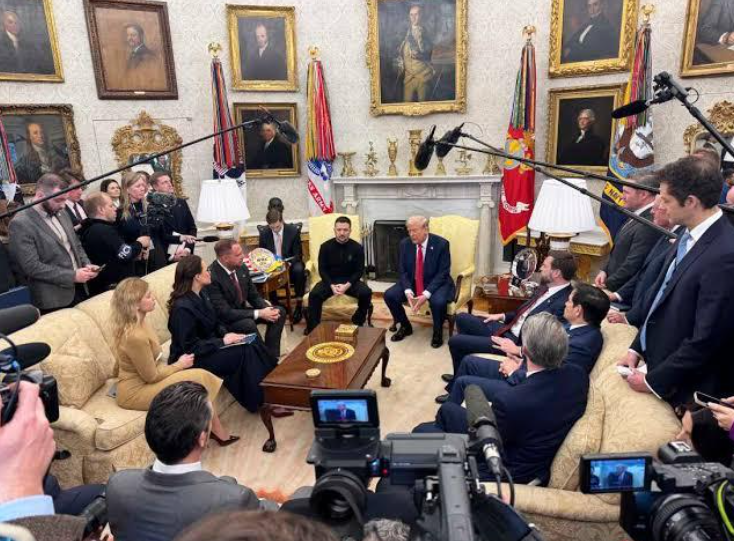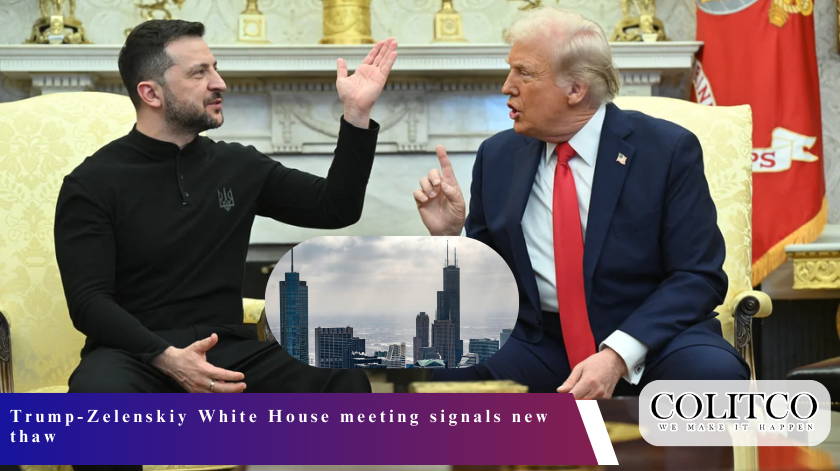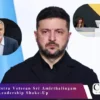What sparked this new diplomatic thaw?
Ukraine President Volodymyr Zelenskiy arrived with a special presidential welcome at the White House on 18 August 2025. The meeting had context from the Alaska summit between the two leaders, wherein early signs of possible compromise emerged.
Trump declared he would make sure Ukraine gets help; however, he gave very few details and no clear commitments. He stated some US-backed guarantees could be signed within 10 days, but so far, leaders have been waiting on the details.
The European partners watched these developments closely, wary of any concessions that might undermine NATO’s position.

Zelenskiy welcomed at the White House after the Alaska summit progress
Is a trilateral summit now underway?
Trump revealed that he was trying to set up a meeting for Zelenskiy and Putin. A tripartite summit could be held in two weeks.
There are reports that Budapest will host, though the Kremlin has not given word of accepting.
Putin had expressed his intent to engage, with Russia looking to outline conditions first before negotiations start. The prospect renewed cautious optimism but also concern about Europe’s leverage in negotiating.
Europe presses for firm security support
European leaders demanded hard commitments, fearful that a rush towards a settlement could easily dismiss guarantees on NATO levels. They stressed providing fully operational guarantees for Ukraine “of Article 5 sort”.
German Chancellor Friedrich Merz, French President Emmanuel Macron, and British Prime Minister Keir Starmer asked for clarification.
They postulated that a peace treaty cannot be pursued in the absence of an enforced ceasefire and a clear defence domain. Dutch Prime Minister Mark Rutte warned against the repetition of weak security arrangements.
Trump softens tone, Zelenskiy thanks profusely
The atmosphere was quite the opposite of their address in February. Analysts coined the phrase “gratitude diplomacy” to define what Zelenskiy was doing.
Within the first minute of their joint remarks, Zelenskiy had thanked Trump nine times! In response, Trump went on to praise Zelenskiy’s spirit while also suggesting that he himself would be willing to make a compromise.
This sudden shift in their diplomatic tone added to the perception of a reciprocal thaw between the U.S. and Ukraine.

Analysts dub Zelenskiy’s softer tone as “gratitude diplomacy”
Zelenskiy rejects territorial concessions
Rumours suggested that Trump conveyed to Putin the latter’s demand for the recognition of Russia’s hold over Donetsk. The demand-buying the front lines would generally give Kyiv less territory to control. Zelenskiy flatly rejected it, citing Ukraine’s constitution and sovereignty. He stressed that no leader could ever trade land for peace. The rejection acted as assurance for demoralised internal audience,s but the same set of events went on to obstruct Trump’s hopes for a quick deal.
Security guarantees remain vague but hopeful
Reiterated assurance to the conflict-ridden region, with a promise that “there’s going to be a lot of help”. Putin is against NATO troop deployments on security grounds. European capitals are still banging for a clear stance from Washington. Zelenskiy termed Trump’s comments as a “big step forward”, notwithstanding the lingering unresolved issues. The observers agree on optimism but stress that concrete guarantees should come soon.
NATO reaction highlights strategic stakes
NATO leaders gave a cautious reaction to the developments in the White House. Although some welcomed the reinvigorated dialogue, others feared that those concessions would undermine the alliance’s credibility. There was an emphasis on NATO red lines from officials, particularly those concerning troop deployments and prospects of Ukrainian membership. The very credibility of the alliance lies in remaining credible as a deterrence whilst engaging keenly in the prospect of peace talks.
This balance will test cohesion in the months ahead.
Global markets eye Jackson Hole symposium
Beyond security, attention is now turned toward the Jackson Hole Fed symposium. Investors expect the Federal Reserve officials to have addressed global risks, including that of the Ukraine crisis.
Yet, any hawkish tones might suppress market enthusiasm fueled by diplomatic optimism. Analysts indicate monetary policy signals can sway perceptions of geopolitical stability. At an intersection of war and finance stand the stakes of U.S.-Ukraine engagement.
Also Read: Former NSW MP Daryl Maguire Sentenced to 10 Months Prison for Misleading ICAC
A cautious step forward
The Trump-Zelenskiy White House meeting was a rare moment of optimism. There remain, though, huge obstacles in terms of security guarantees, territorial integrity, and the demands of Russia.
For Ukraine, the challenge is to obtain lasting commitments at no cost to sovereignty. For Trump, it is a diplomatic gamble that could secure him prestige or engender a backlash from his allies. For Europe, unity and resolve will be needed as the talks move forward.












